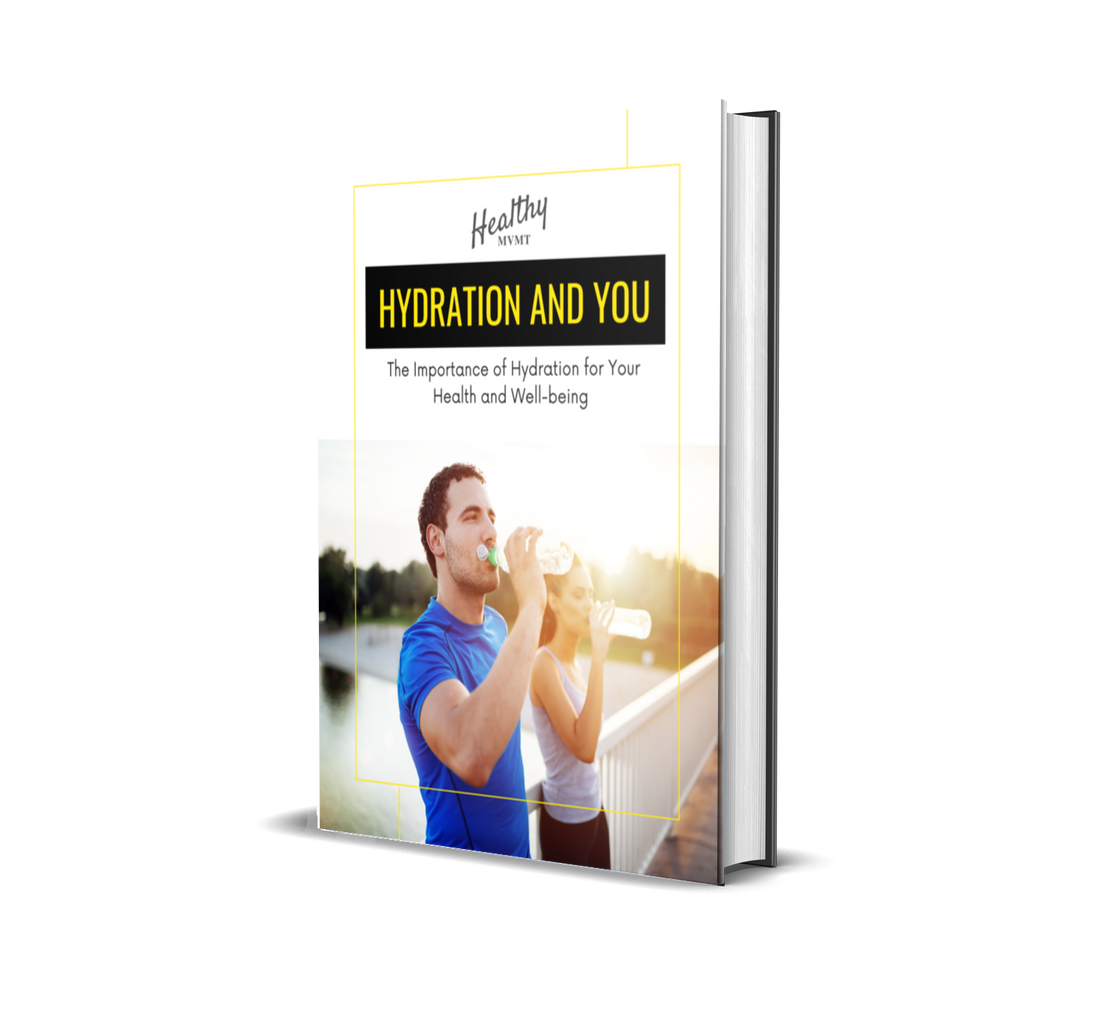The following is an excerpt from our book, Hydration and You. A FREE eBook available in our store.
Want to know just why it is so important to get your daily intake of water? Download this book now. It has seven chapters covering all of the ways our body needs water for a happy, healthy lifestyle.
Chapter 7: The Best Ways to Hydrate
What are the different sources of hydration? Let’s review water, sports drinks, and fruits and vegetables. We will also look at the pros and cons of each source and provide tips for incorporating them into your daily routine.
Hydration Sources Reviewed
Water:
Water is the most common and essential source of hydration. It is necessary for many bodily functions, including regulating body temperature, aiding digestion, and flushing out toxins. The benefits of water include:
Pros:
- It's calorie-free
- It's easily accessible and affordable
- It's necessary for optimal bodily functions
- It's essential for maintaining healthy skin, hair, and nails
Cons:
- It can be bland and unappealing to some people
- It does not contain electrolytes, which can be lost through sweating
- It may not provide sufficient hydration during intense exercise or prolonged physical activity
Sports Drinks:
Sports drinks are designed to replenish electrolytes and provide hydration during intense physical activity. They contain electrolytes such as sodium, potassium, and magnesium, which can be lost through sweating. The benefits of sports drinks include:
Pros:
- They provide essential electrolytes for optimal hydration during intense exercise
- They can provide a quick source of energy and improve athletic performance
- They can help prevent dehydration during long periods of physical activity
Cons:
- They can be high in sugar and calories, which can contribute to weight gain
- They can be expensive and less accessible than water
- They may not be necessary for moderate exercise or physical activity
Fruits and Vegetables:
Fruits and vegetables are a good source of hydration and contain essential vitamins and minerals that are necessary for optimal health. Many fruits and vegetables have a high water content, which makes them a good choice for hydration. The benefits of fruits and vegetables include:
Pros:
- They provide essential vitamins and minerals for overall health
- They can provide a good source of hydration, especially for those who do not enjoy drinking water
- They contain fiber, which can help you feel full and satisfied
Cons:
- They may not provide sufficient hydration during intense physical activity
- Some fruits and vegetables may be high in sugar, which can contribute to weight gain if consumed in excess
- They can be more expensive and less accessible than water
How to Incorporate Hydration Into Your Daily Routine
Staying hydrated is essential for overall health and well-being. Here are some ways to incorporate hydration into your daily routine.
Carry a water bottle. Keep a reusable water bottle with you at all times, whether you're at work, running errands, or working out. This will make it easier to stay hydrated throughout the day.
Set reminders. Use an app or set reminders on your phone to remind you to drink water throughout the day. This can be especially helpful if you have a busy schedule and tend to forget to drink water.
Add flavor to your water. If you find water boring or unappealing, add some flavor to it by infusing it with fruits or herbs. This can make drinking water more enjoyable and encourage you to drink more.
Eat fruits and vegetables. Incorporate fruits and vegetables into your diet that have a high water content, such as watermelon, cucumbers, and oranges. This can help you stay hydrated and provide essential vitamins and minerals.
Avoid sugary drinks. Limit your consumption of sugary drinks, such as soda and juice, as they can contribute to dehydration and weight gain.
Drink before, during, and after exercise. Make sure to drink water before, during, and after exercise to prevent dehydration and replenish electrolytes.
Monitor your urine color. Check the color of your urine to ensure that you are adequately hydrated. Pale yellow or clear urine is a good indication of proper hydration.
Adjust your intake for your needs. The amount of water you need to drink each day can vary depending on factors such as age, gender, activity level, and climate. Adjust your intake accordingly to meet your individual needs.
Incorporating these tips into your daily routine can help you stay hydrated and improve your overall health. Remember to choose a source of hydration that fits your individual needs and lifestyle.

